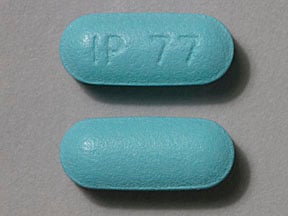
Est Estrogens-methyltest Hs Coupons & Savings Card – Discount Prices from $93.54
Covaryx is a prescription medication designed to treat moderate-to-severe menopause symptoms, such as hot flashes, night sweats, and vaginal dryness, itching, and burning. It is particularly useful when estrogen therapy alone is insufficient. This medication is a combination of esterified estrogens and methyltestosterone, which function similarly to natural hormones in the body to help balance hormonal changes during menopause. While Covaryx can effectively alleviate these symptoms, it is important to be aware of potential serious risks, including blood clots and an increased risk of breast and uterine cancer. If the primary concern is vaginal symptoms, treatments applied directly inside the vagina may be considered before oral, topical, or injectable medications. Always consult healthcare professionals before starting any new treatment to ensure it is appropriate and safe for your specific needs.
Our coupons are free to use. Before paying, show the pharmacist your Est Estrogens-methyltest Hs savings card to get your free discount. Use our filters below to edit the prescription box to match your needs. The Est Estrogens-methyltest Hs prices will update based on your prescription needs. Above our Est Estrogens-methyltest Hs coupons, you can change your location to see pharmacy prices and costs in other areas. We're here to help you buy Est Estrogens-methyltest Hs at the lowest price with our prescription discount card.
My prescription
Edit
0.625-1.25MG, Est Estrogens-methyltest (100 Tablets)
Select pharmacy

CVS
$137.86
COUPON PRICE
Albertsons
$93.54
COUPON PRICE
Walgreens
$125.50
COUPON PRICE
Walmart
$292.01
COUPON PRICEEst Estrogens-methyltest Hs savings card
Show this card to your pharmacist
Albertsons
$93.54
BIN
ID
PCN
GRP
019876
LH87D970A1
CHIPPO
LHX
Powered by
Covaryx is a prescription medication designed to treat moderate-to-severe menopause symptoms, such as hot flashes, night sweats, and vaginal dryness, itching, and burning. It is particularly useful when estrogen therapy alone is insufficient. This medication is a combination of esterified estrogens and methyltestosterone, which function similarly to natural hormones in the body to help balance hormonal changes during menopause. While Covaryx can effectively alleviate these symptoms, it is important to be aware of potential serious risks, including blood clots and an increased risk of breast and uterine cancer. If the primary concern is vaginal symptoms, treatments applied directly inside the vagina may be considered before oral, topical, or injectable medications. Always consult healthcare professionals before starting any new treatment to ensure it is appropriate and safe for your specific needs.
Our coupons are free to use. Before paying, show the pharmacist your Est Estrogens-methyltest Hs savings card to get your free discount. Use our filters below to edit the prescription box to match your needs. The Est Estrogens-methyltest Hs prices will update based on your prescription needs. Above our Est Estrogens-methyltest Hs coupons, you can change your location to see pharmacy prices and costs in other areas. We're here to help you buy Est Estrogens-methyltest Hs at the lowest price with our prescription discount card.
More prescriptions for menopause
coupons from$67.25Save 58%
coupons from$48.03Save 44%
coupons from$424.84Save 17%
coupons from$103.40Save 73%
coupons from$132.66Save 79%
coupons from$21.50Save 82%
coupons from$9.37Save 82%
coupons from$48.03Save 44%
More prescriptions for menopause
Brisdelle Save 58%coupons from $67.25
Mimvey Save 44%coupons from $48.03
Pexeva Save 17%coupons from $424.84
Estradiol Valerate Save 73%coupons from $103.40
Estrogens Conjugated Save 79%coupons from $132.66
Paxil Save 82%coupons from $21.50
Vivelle-dot Save 82%coupons from $9.37
Activella Save 44%coupons from $48.03
Est Estrogens-methyltest Hs dosage forms
Use our Est Estrogens-methyltest Hs 0.625-1.25MG coupon with prices from $54.17 for 30 Tablets. You can also use our Est Estrogens-methyltest Hs 0.625-1.25MG coupon with prices from $145.86 for 100 Tablets.
Dosage Quantity Price from Per unit 0.625-1.25MG 30 Tablets $54.17 $1.81 0.625-1.25MG 100 Tablets $145.86 $1.46
| Dosage | Quantity | Price from | Per unit |
|---|---|---|---|
| 0.625-1.25MG | 30 Tablets | $54.17 | $1.81 |
| 0.625-1.25MG | 100 Tablets | $145.86 | $1.46 |
